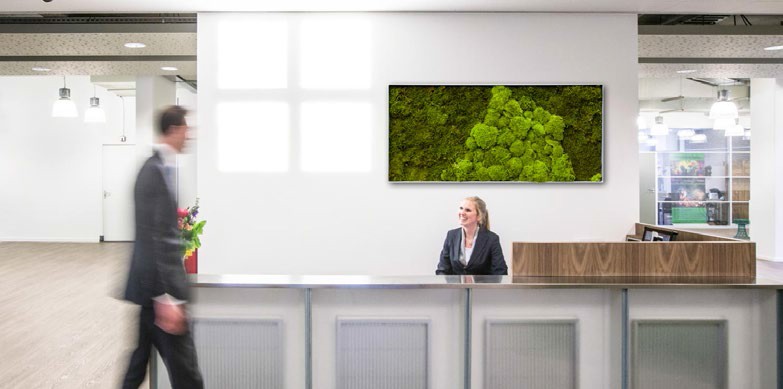
These days it’s all about going green in the office, and we’re not just talking about office plants. Guest blogger Lilli Hender, from workplace experts OfficeGenie.co.uk, looks at a few ways you can save energy (and money!) where you work.
When it comes to saving energy, the home gets an awful lot of attention. But with people spending around one third of their day in the workplace, there are serious savings to be made there too: From the smallest idea to wide-ranging policy there is an awful lot a business can do.
Turn it down
One of the biggest home energy tips is to turn the thermostat down by one degree and watch the savings roll in. So there’s no reason not to do so in the workplace as well! Similarly, in the summer an open window can work wonders; you don’t always have to resort to air-con (and fresh air can boost productivity). You could also bring fresh air into the office via a plant or two: they reduce CO2 and harmful toxins and regulate humidity levels.
Hit the lights
Another real basic, but it goes without saying you’re going to save a good amount of electricity if you turn all the lights off at the end of the day. But there’s more: Increasing numbers of businesses are also embracing sensor-activated lighting. Ultimately this means if there’s no-one in a chunk of the workplace, then it won’t be lit up, saving you valuable electricity.
Activate energy-saving mode
Much like lights, devices left on overnight are just wasting energy – so ensure they’re all off. No standby mode, no sleep mode; you’re best off going the whole hog. Most also have an ‘energy saving mode’, so try to activate this when you can if it is practical to do so. Finally try to unplug everything once it’s hit full charge; it saves equipment using ‘vampire power’ when plugged in on full battery.
Get recycling
When your devices have finally given up the ghost; you’ve got another opportunity to go a little greener. Opt to send them to a computer recycling company, rather than simply binning them. This is much more environmentally friendly, and more secure. Recycling firms will ensure hard drives are wiped thoroughly, so you’re at a much lower risk of anyone accessing potentially-valuable data on binned equipment.
Teas all round
Ahhhh the much-loved office tea round. It’s something to embrace if you’re looking to save energy. Research has found solo-tea making can cost the economy upwards of £160 million a year in wasted water and electricity. So, it can pay to join in the fun, particularly if you’ve previously been sneaking the odd brew just for you.
Ditch the paper
Something we’ve instigated at Genie to great effect is the ‘paperless office’. Tools such as Google Drive and Microsoft OneDrive make it (generally) easy to store and share documents digitally – so signing up to one of these can be a great first step to a paperless office. Through these, and thoughtful use of the printer, all our offline documents can now be stored in one small cupboard, with very little wastage.
Look outside
Why limit yourself to what goes on in the workplace? Gas-guzzling cars being driven to the office every day will generally be much more harmful for the environment than even the most energy-inefficient habits. Organising a carpool can be a great start to cutting emissions. If everyone in the country took just one lift each week, rather than driving themselves, pollution levels could be cut by up to 10%.
Furthermore increasing numbers of businesses are encouraging employees to cycle to work: The government’s Cyclescheme offers tax-free bikes to those signed up, which can be a great way to get more people pedalling!
Go flexible
Possibly, the biggest change you can make on this list. If employers allow staff to work remotely, then that should mean fewer people, and less energy being used, in the office. Ultimately it could even mean you can potentially cut down the size of your workplace. This means less space to heat, light and so on – and of course it will help you cut down on rental costs too.
All this is theoretical, and it won’t work for everyone, but flexible working is an often-overlooked way to save a bit of energy in the workplace.
Lilli Hender is staff writer for OfficeGenie.co.uk, a search engine for desk and office space.
